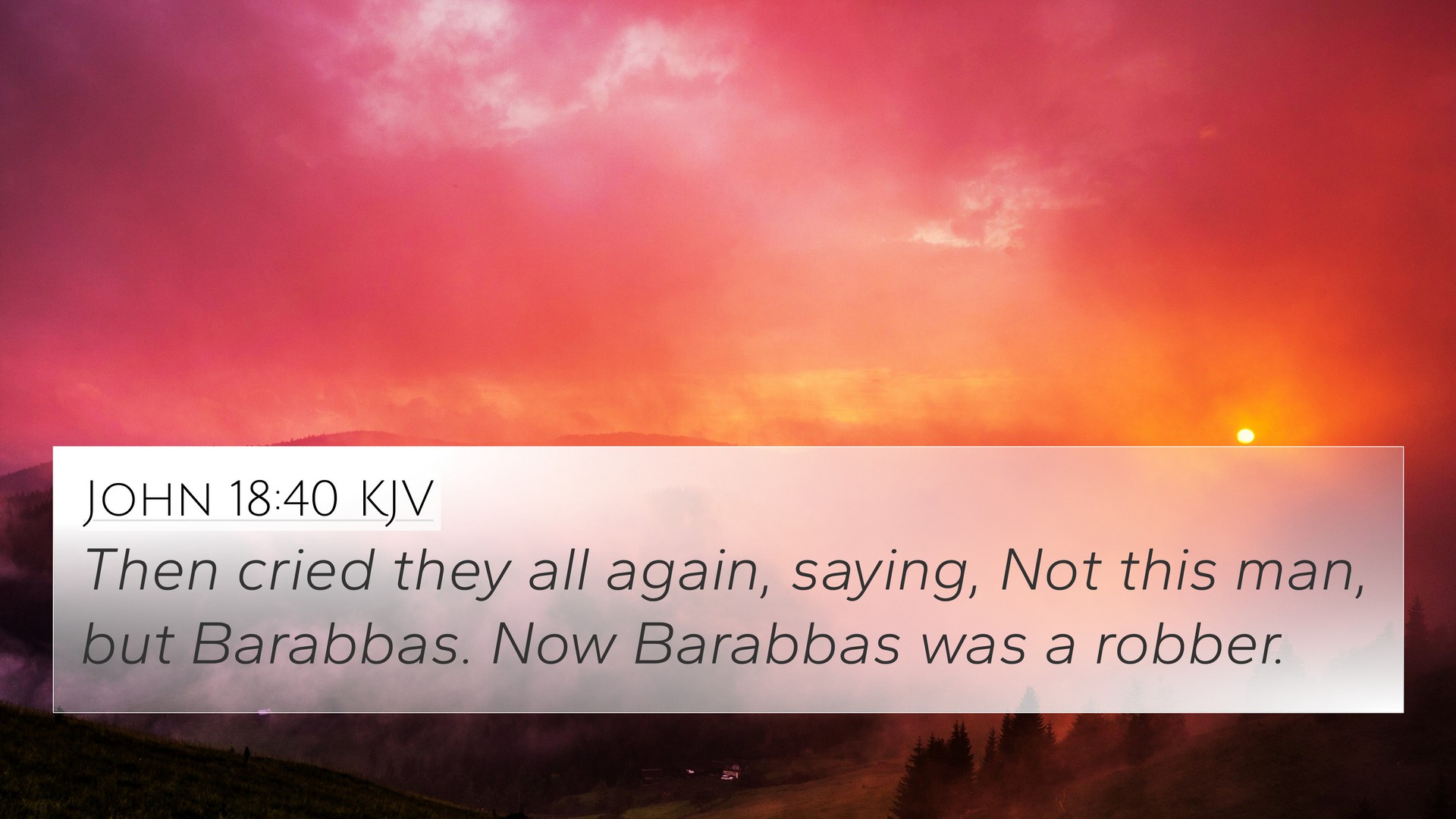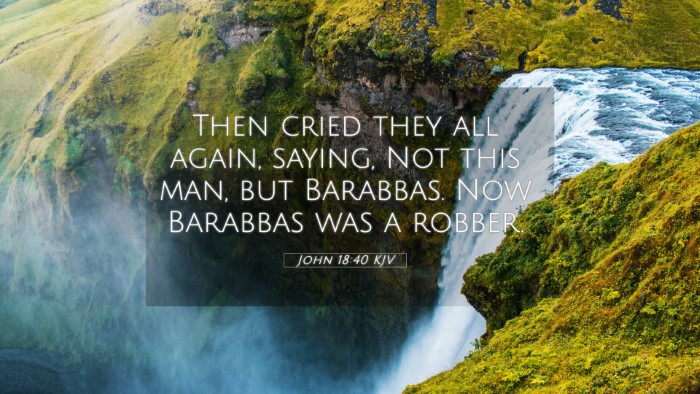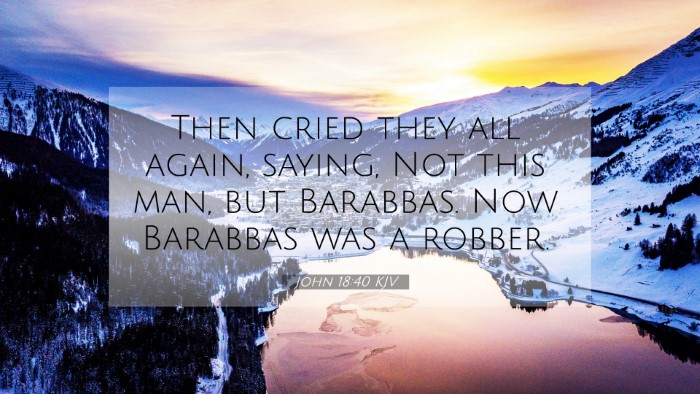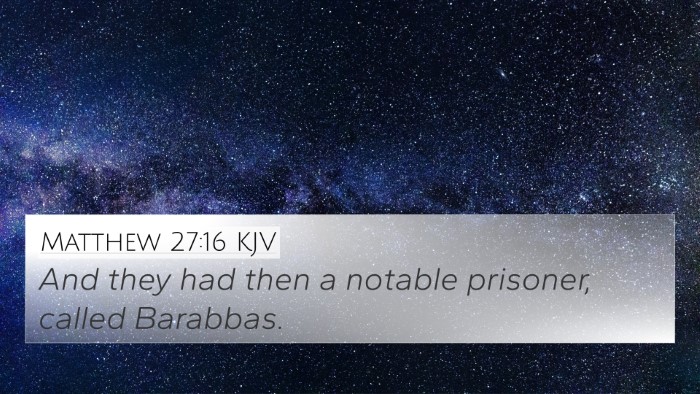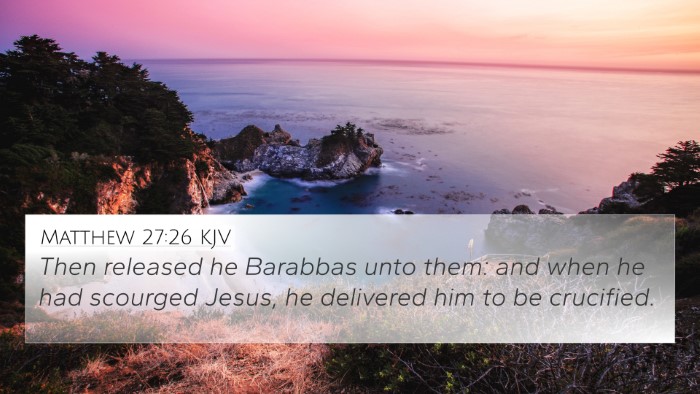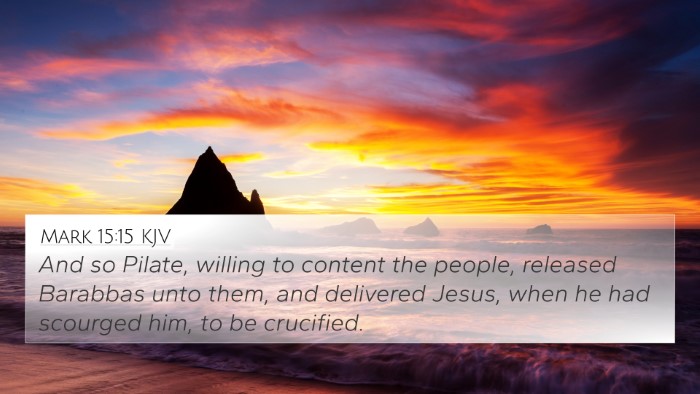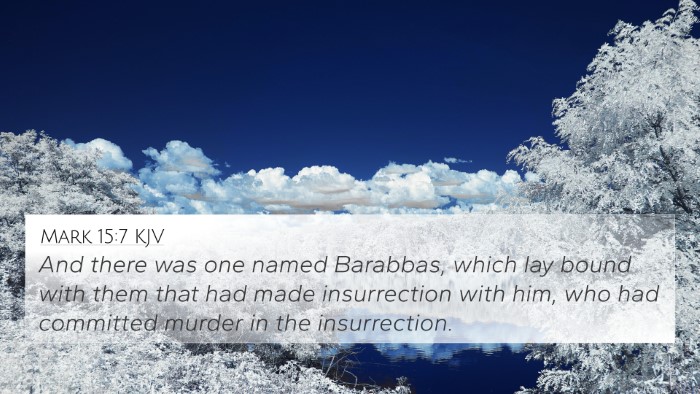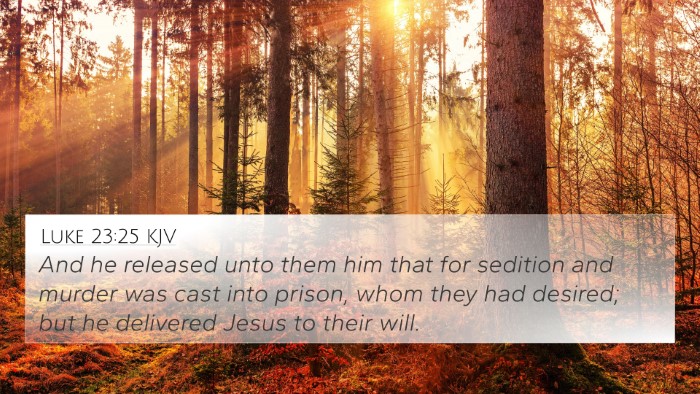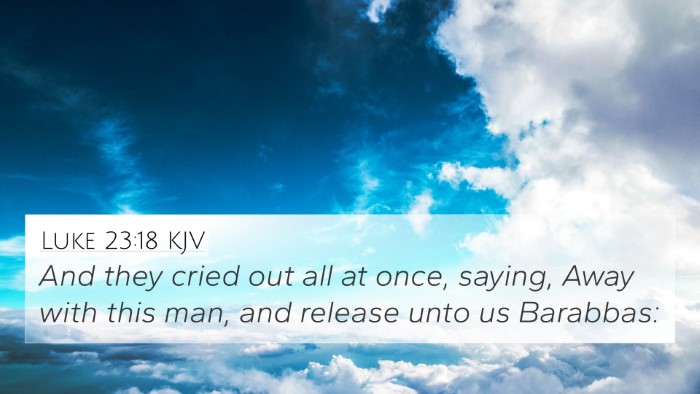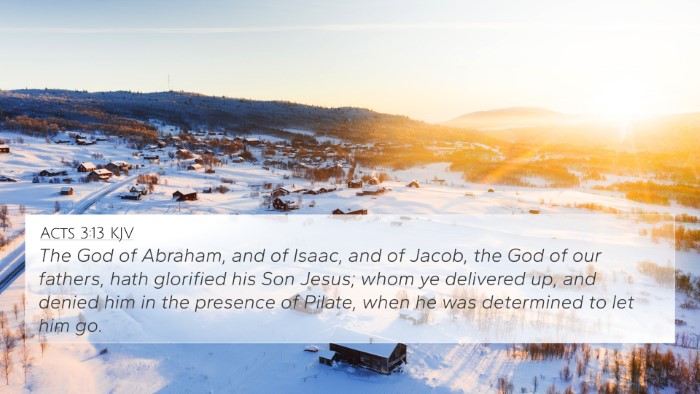Bible Verse Meaning of John 18:40
Verse Summary: John 18:40 states: "Then cried they all again, saying, Not this man, but Barabbas. Now Barabbas was a robber." This moment occurs during the trial of Jesus before Pilate, where the crowd demands the release of Barabbas, a notorious criminal, instead of Jesus.
Insights from Public Domain Commentaries
John 18:40 highlights a profound biblical moment that reflects on the nature of justice, crowd mentality, and the fulfillment of prophecy concerning Jesus’ suffering. The verses surrounding this scene set the stage for understanding the gravity of this choice made by the people of Jerusalem.
Matthew Henry's Commentary
According to Matthew Henry, this verse reveals the depths of human depravity and the sway of public opinion. The decision to release Barabbas, a known robber, instead of Jesus, signifies not just a failure of justice but also underscores how the masses can be led to reject righteousness for their base desires. Henry emphasizes that this crowd's choice foreshadows the broader rejection of Christ by the Jewish nation.
Albert Barnes' Notes
Albert Barnes provides a detailed analysis, asserting that Barabbas symbolizes the sinful and rebellious nature of humanity contrasting with the innocent Jesus. The release of Barabbas represents a stark choice that illustrates the tendency of people to prefer sin over salvation. Barnes sees this narrative as a prophetic indicator of the rejection of the Messiah, fulfilling Isaiah 53:3, where it was foretold that He would be despised and rejected by men.
Adam Clarke’s Commentary
Adam Clarke elaborates on the significance of the names and roles in this verse. He identifies Barabbas as a robber, interpreting this as symbolic of the world's condemnation of the innocent Savior in favor of the guilty. Clarke points out that the name "Barabbas" could mean "son of the father," a stark juxtaposition against Jesus, "the Son of God." This underscores the themes of sin and redemption throughout the Gospels.
Bible Verse Cross-References
- Matthew 27:21 - "The governor answered and said unto them, Whether of the twain will ye that I release unto you? They said, Barabbas."
- Mark 15:7 - "And there was one named Barabbas, which lay bound with them that had made insurrection with him, who had committed murder in the insurrection."
- Luke 23:18-19 - "And they all cried out at once, saying, Away with this man, and release unto us Barabbas: (Who for a certain sedition made in the city, and for murder, was cast into prison.)"
- Isaiah 53:3 - "He is despised and rejected of men; a man of sorrows, and acquainted with grief..."
- 1 Peter 2:22 - "Who did no sin, neither was guile found in his mouth."
- John 1:11 - "He came unto his own, and his own received him not."
- John 19:15 - "But they cried out, Away with him, away with him, crucify him..."
Key Themes and Connections
John 18:40 serves as a powerful illustration of several enduring themes in scripture:
- The Rejection of Jesus: This moment sharply depicts how Jesus faced rejection, fulfilling prophecies that pointed to His sufferings and afflictions.
- The Nature of Sin: The crowd's choice emphasizes the human inclination towards sin, choosing Barabbas over the sinless Savior.
- Public Influence: This event demonstrates the impact of crowd mentality, which can lead to unjust outcomes against the backdrop of divine plan.
- Foreshadowing Redemption: The choice to release a criminal for Jesus sets the stage for the sacrificial nature of Christ's death, aligning with the biblical narrative of redemption.
Exploration of the Verse and Related Scriptures
When studying John 18:40, it's essential to explore how it connects with other passages that illustrate similar themes and emotions.
- In John 10:18, Jesus speaks of His authority to lay down His life and take it up again, a notion that highlights His voluntary acceptance of sacrifice.
- Luke 23:34 captures Christ’s intercession for those who wronged Him, showing His mercy even in rejection.
- The contrast between Barabbas and Christ invites deeper reflection on identity and legacy, as discussed in Romans 5:8, where the love of God is showcased through Christ’s sacrifice for sinners.
- Moreover, Philippians 2:7-8 speaks to Jesus’ humility and obedience to death, aligning with His unjust fate in this passage.
Conclusion
The events surrounding John 18:40 provide significant insights into the themes of choice, justice, and ultimate sacrifice. Through the lens of public domain commentaries, we can grasp the weight of this moment not only in the context of the crucifixion but also in our understanding of sin and redemption. This verse stands as a poignant reminder of humanity's choices that reflect deeper spiritual truths.
For those engaged in Bible cross-reference study, this verse linkages provide an opportunity to explore how different themes harmonize across the Scriptures, enriching one's understanding of biblical narratives.
